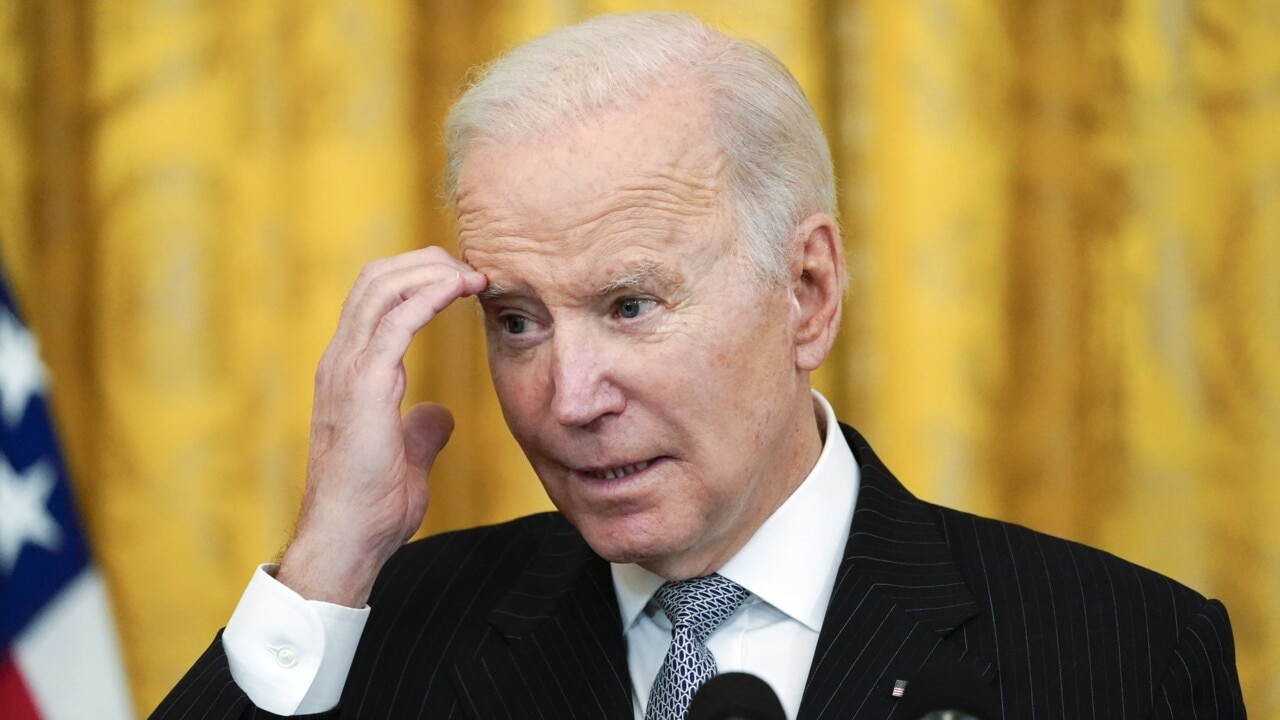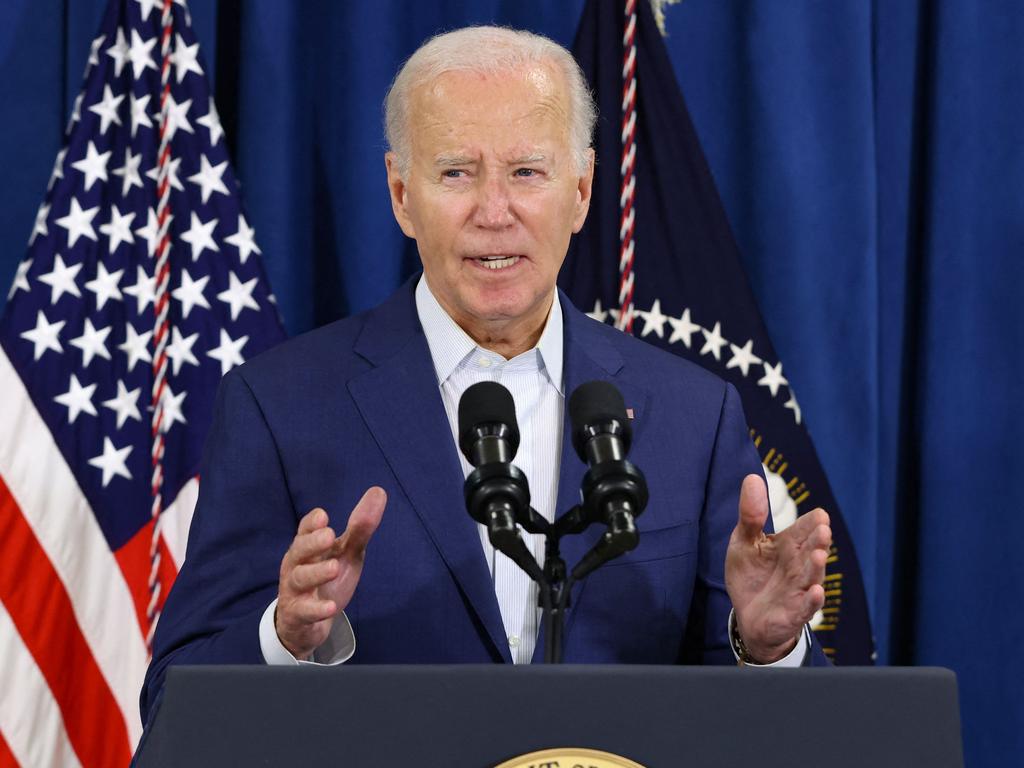Yes, America is riven by extremes, but it will rebound


The answer, I’m afraid, is simultaneously alarming, depressing and reassuring.
It’s alarming because, just before the shooting, the passions and mutual hostility between left and right in American politics seemed greater than at any time in decades. It’s true that the election will substantially be decided by pragmatic voters concerned chiefly with cost of living, crime rates, job opportunities, education, illegal immigration. Some of these issues are highly charged, but the voters are pragmatic, only very modestly ideological.
However, both parties, both sides of politics, have large hinterlands of extremism. By extremists I don’t mean socialists who really, really want to help the poor, or patriotic Republicans who would give their lives for their nation and expect some respect for the flag. I mean on the left folks who believe identity politics is the only moral arbiter of modern life and the enemies of identity politics are irredeemable evil fascists. And on the right, semi-deranged conspiracy theorists who think the chief threat to the world is nuclear war caused by the US deep state and military industrial complex, while democracy is just a sham designed to serve the secret ruling class.

Of course there are other categories of extremists. The situation is worsening as the ranks of extremists swell, social media amplifies hatreds and mainstream politicians are tempted to “double broadcast”, saying things that are logical and appeal to pragmatic voters but also contain enough signals, code words and, above all, performative anger to encourage the extremists.
I think in recent decades the left has been much more encouraging of extremist and extreme behaviour, such as targeting politicians’ homes, than the right. But now the right’s extremists are as loony as the left’s.
The facts are important. Trump’s behaviour on January 6, 2021, was appalling. He emotionally whipped up the crowd. But it’s also the case that he told them to protest “peacefully”. Disgraceful and horrible as it was, January 6 was more a riot that got out of control at a radically under-policed sensitive government site. It no more renders the centre right fascist than the hundreds of violent defund the police demonstrations render the centre left communist revolutionaries. But that’s how each side sees the other.
Trump’s first term didn’t destroy, nor indeed seriously damage, American democracy. His complaints about the validity of his election loss were thrown out by every court that heard them. Yet still he’s presented as an unqualified fascist.
So that’s the alarming bit.
Here’s the depressing bit. Previous ideological conflict in America – over the Vietnam War, the culture wars since the 1960s, the size of government, the conduct of the Cold War and even the Middle East – has never fundamentally compromised core institutions. It’s a standard criticism of Trump that he doesn’t respect US institutions and threatens their independence and legitimacy. It’s certainly true that Trump’s rhetoric sometimes moves in that direction and that’s dangerous. However, the facts place the chief danger to institutions elsewhere.

It wasn’t under Trump that a slew of political prosecutions was launched. In 2016 Trump’s rallies, in ugly fashion, yelled “Lock her up!” in relation to his opponent, Hillary Clinton. But it’s also the case that in Trump’s four years in office, Clinton wasn’t prosecuted.
Under Joe Biden, however, Trump has been subject to four absurd political prosecutions. He is exclusively charged by Democrat prosecutors for offences that are marginal or non-existent and in many cases – such as the alleged illegal handling of documents – for conduct that many Democrats have undertaken without prosecution. Trump administration officials have gone to jail for refusing to testify to a then Democrat-dominated congress. Democrat officials have refused to testify to the now Republican-controlled congress but there’s no prospect of them going to jail.
The significance of this is it indicates Democrats have politicised and corrupted the court system. This is a cause of deep pessimism. Once what should be completely apolitical institutions are weaponised as a routine part of the political contest, a society is in a lot of trouble.
Because Democrats, and organs of liberal America, have so wildly demonised Trump, many regard any conduct designed to stop him as legitimate, including the perversion of the legal system.
The other cause for pessimism is that America’s conflict now involves a deep, enduring clash of cultures. Both David Brooks in The New York Times and Tunku Varadarajan in The Wall Street Journal, reviewing a book by French political scientist Olivier Roy, addressed the same problem this week.
There is now a fundamental conflict in America between the cultural trend that has banished God and those who continue to wish, however imperfectly, to serve God. To translate this into cultural/political terms, Brooks argues the death of God means for the left that identity politics has become the totality of all civic and personal morality. Varadarajan recounts Roy arguing that with the loss of God an entire structure of knowledge and moral community has been banished. There is no absolute truth, and finally no clear right and wrong. The result is entropy, chaos, disorder.

Evidence for pessimism is provided by the reaction to the Trump shooting on social media. His supporters are wildly angry. But his opponents are also wildly angry, angry at the sympathy he’s getting. Biden responded properly with condemnation of the shooting, a phone call to Trump and so on.
But if anything these gestures will only increase the sense of the Democrats’ radical fringe that Biden is an old fuddy-duddy.
For extremists on both sides the idea that the enemy is pure evil releases them from any constraints in the ways they prosecute their politics.
For all that, there is still something genuinely, profoundly reassuring about American society that offers hope that it may yet rebound and recover. I’ve been staying with my wife in a small hotel in Virginia some way out of Washington DC. Everywhere we go we encounter what writer Michael Gawenda called “the great American friendliness”.
As I struggle unsuccessfully with every bit of modern life’s technology, I’m always rescued by kindly Americans. A lovely African-American woman not only patiently and kindly shows me how to operate the subway ticketing system, any time I ask anyone for directions the response is forthcoming, helpful, full of goodwill. As soon as anyone hears we’re Australian a whole paean of praise for our beloved land comes forward. It’s just the case that these are people with love in their hearts and near the surface of their personalities.
The man who was killed at the Trump rally, Corey Comperatore, was a firefighter, a husband and father, a weekly churchgoer, and as the shooting started he threw himself on top of his family so the bullets would hit him and not them. That’s the kind of person, among others, who attends Trump rallies.

America has suffered grievous, seemingly irreparable internal division before. The civil war was fought partly over the integrity of the union of states, but the underlying issue was slavery. There was intense division in the first years of World War I, then in the Depression. The Cold War was vigorously contested within America as well as internationally. And there was ferocious internal conflict during the Vietnam War.
That conflict didn’t compromise American institutions and, although it involved mass demonstrations, it didn’t involve mass violence. Nonetheless the disagreements were bitter and long lasting. But ultimately the great American friendliness, the underlying goodwill of people, the restorative common sense and deeper purposes of life, prevailed and restored a certain decency to American life.
America has always been good on the rebound. I believe it still is.







Is America on the brink of civil war, of the breakdown of basic law and order, of gross civil disorder, in the wake of the assassination attempt on Donald Trump?